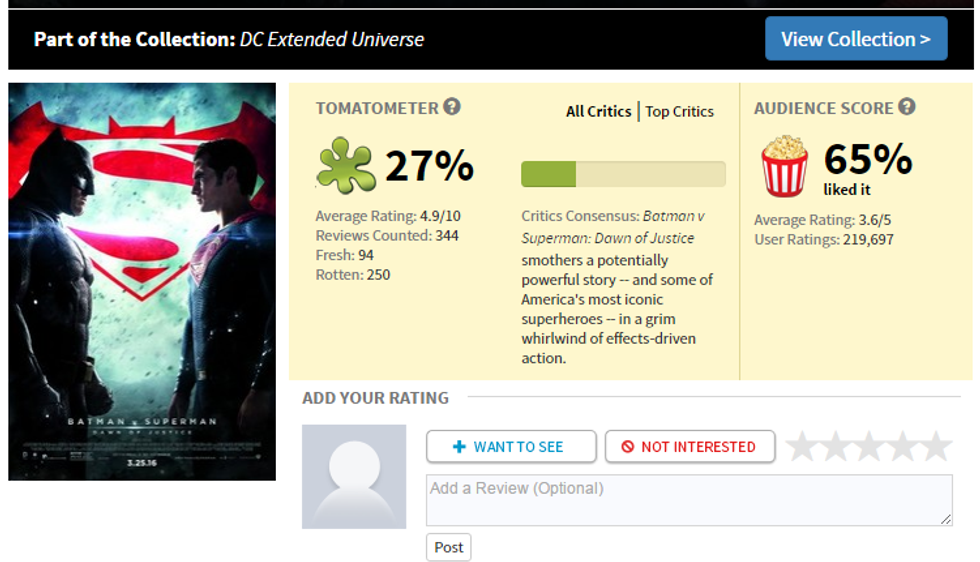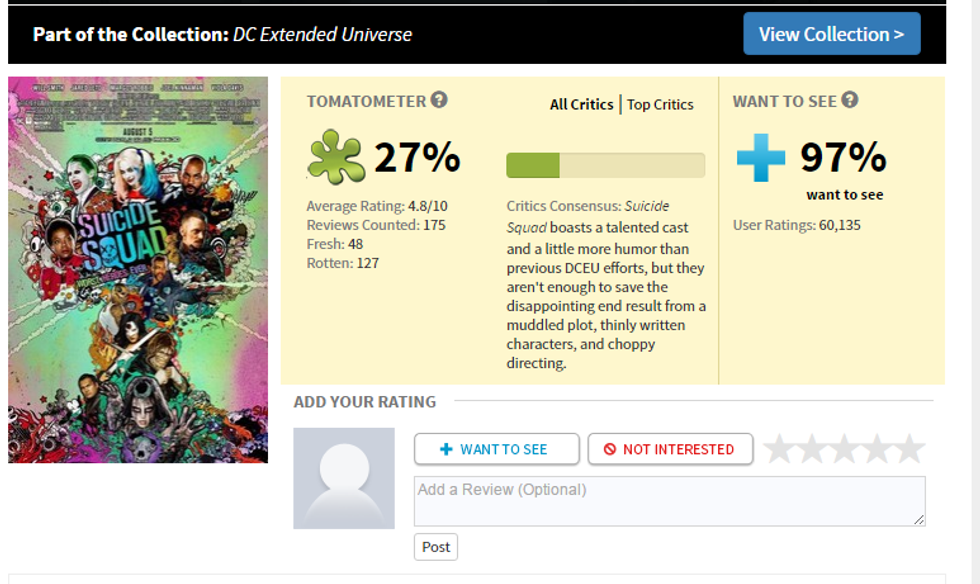Reviews have been way off for "Suicide Squad." In fact, Rotten Tomatoes has granted it the exact same score "Batman v. Superman" has, a lackluster 27%.
"Suicide Squad" is not a bad film. It sets up every character quite nicely and there is a fantastic amount of payoff. It does not deserve to be spoken in the same breath of "Batman v. Superman," something that's not so much a film than a bunch of random scenes that were slapped together in post that vaguely go together.
But how did this happen? Well, reviewers happened.
A review is supposed to analyze a piece of art and break down what works and what doesn't work. How they do this is by breaking apart all the little nitty gritty pieces of that art and talk about it in relation to the codes and conventions of its genre. Genre conventions set the audience expectations for what type of film they're about to see, and the film can either defy those expectations in a meaningful way, meet those expectations, or disappoint.
This is where some reviewers fall off. They forget that genre theory and the language of film serve to explain, in an academic way, why certain things pleases an audience and what does not. They forget that you must judge a piece of art by its own standards, which are determined by genre conventions.
In this way, it is extremely unfair to judge a film like "Suicide Squad" like it's high art. "Suicide Squad" never feigns the pretense of being a work of that caliber; it's a blockbuster ensemble movie based off of comic book characters. A reviewer's job is to communicate to that movie's audience that it's either a good or bad example of the particular type of art that it is, though analyzing a piece of art from how a general audience would receive it is a worthy perspective, too.
Not every piece of art has to be deep and meaningful. Some only set out to do a set amount of things, and as long as those goals are adequately met, that's a good piece of art.
"Suicide Squad" by all means only wanted to be a dumb popcorn flick with fun characters and payoff. David Ayer never set out to make the next "Citizen Kane." That film was also not made for academics, nor do reviewers write for academics.
"Suicide Squad" knew who its audience was and hit all the marks it needed to to make the film a worthwhile experience. That's all a moviegoer cares about. That's all Warner Bros. cares about. It's time these reviewers get off their high horse and actually analyze films with a general audience in mind. That is why their reviews exist, after all, to provide a service to the public.



















